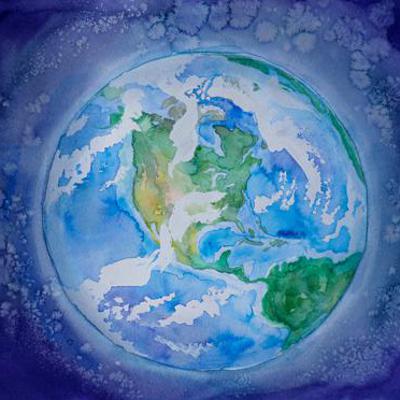
Parshas Devorim - Relevant Everywhere and In All Times
Sefer Devarim begins Moshe’s final speech to Bnai Yisrael as he prepares them for life without him and without the constant miracles of the midbar. The introduction to his speech is: בְּעֵ֥בֶר הַיַּרְדֵּ֖ן בְּאֶ֣רֶץ מוֹאָ֑ב הוֹאִ֣יל מֹשֶׁ֔ה בֵּאֵ֛ר אֶת־הַתּוֹרָ֥ה הַזֹּ֖את לֵאמֹֽר׃ On the Eastern side of the Yarden river, Moshe began to explain this Torah, saying: Rashi wonders what the word “Be’er" (explain) teaches us? What needed an explanation? Hadn’t he already taught it completely? His answer is: בְּשִׁבְעִים לָשׁוֹן פֵּרְשָׁהּ לָהֶם He explained it to them in seventy languages. How is this at all helpful? The entire generation grew up at Moshe’s feet and they all spoke the same language, Hebrew. Why did Moshe explain the Torah in 70 languages at this point? It surely wasn't for that generation's sake. The Chidushei HaRim teaches us a beautiful insight. Moshe Rabeinu knew that the Torah was not something that we would only live and fulfill in the perfect setting of the midbar or in Eretz Yisrael. Bnai Yisrael was destined to wander through every land and every culture. And in each country where we stopped there would be foreign influences undermining our commitment to Torah. Each generation in each land would face new forces that would threaten to separate the Jewish people from living a Torah life as Hashem intended. And so to fortify us and give us tools we would need to fulfill the Torah in galus, Moshe taught Torah to the Jewish people in every single language. Torah isn’t something we follow only when conditions are perfect and the influences around us draw us closer to Hashem. Torah is also for those times and places when influences pull us away and when foreign ideas infiltrate our lives. Torah is relevant, speaking our language, no matter what today’s language happens to be. This message resonates especially for today's mothers. Moshe Rabeinu could have explained the Torah purely in Hebrew while implying that Torah is perfect and not fully attainable in any language or culture other than our own. Which, of course, is true! So why did he teach it to us in all languages? Because we can’t escape the reality that we are impacted by the culture around us. Not one of us, not even the most insulated family, is completely protected from foreign values. They are all around us, they are insidious, and they even sometimes masquerade as our values! We don’t have a choice. We need to be able to fulfil the Torah in the place where we find ourselves, in the generation we are born. And the message we need to hear and that we need to give our children is that Torah is totally relevant to us today in the world we live in. We have the tools we need to live a Torah life today, to withstand the pressures of today, because Moshe Rabeinu left those tools to us in his final speech. He gave us the Torah for all times and all places and he gave us the power to push back on the influences of the 70 nations of the world and live a life of Torah even in galus. Personal Application I always find it challenging that the most sorrowful time of the Jewish year, the three weeks, fall in the middle of summer vacation for those of us in the northern hemisphere. Everyone wants to relax and soak up the sun, and my kids are no exception. But the summer coincides with Av, the darkest days of our calendar. There’s a real conflict between the culture I live in and the Torah. And it’s my job, as a Jewish mother, to know that I do have the ability to change the mood in my home, to shift the energy from August to Av in a way that my 21st century kids can relate to and appreciate. Moshe explained the Torah in a way that would resonate with us and our children today. We have to do our part and pass on an eternal message in today's language. How do you teach today's children timeless truths? Please share your thoughts and insights!
0 comments